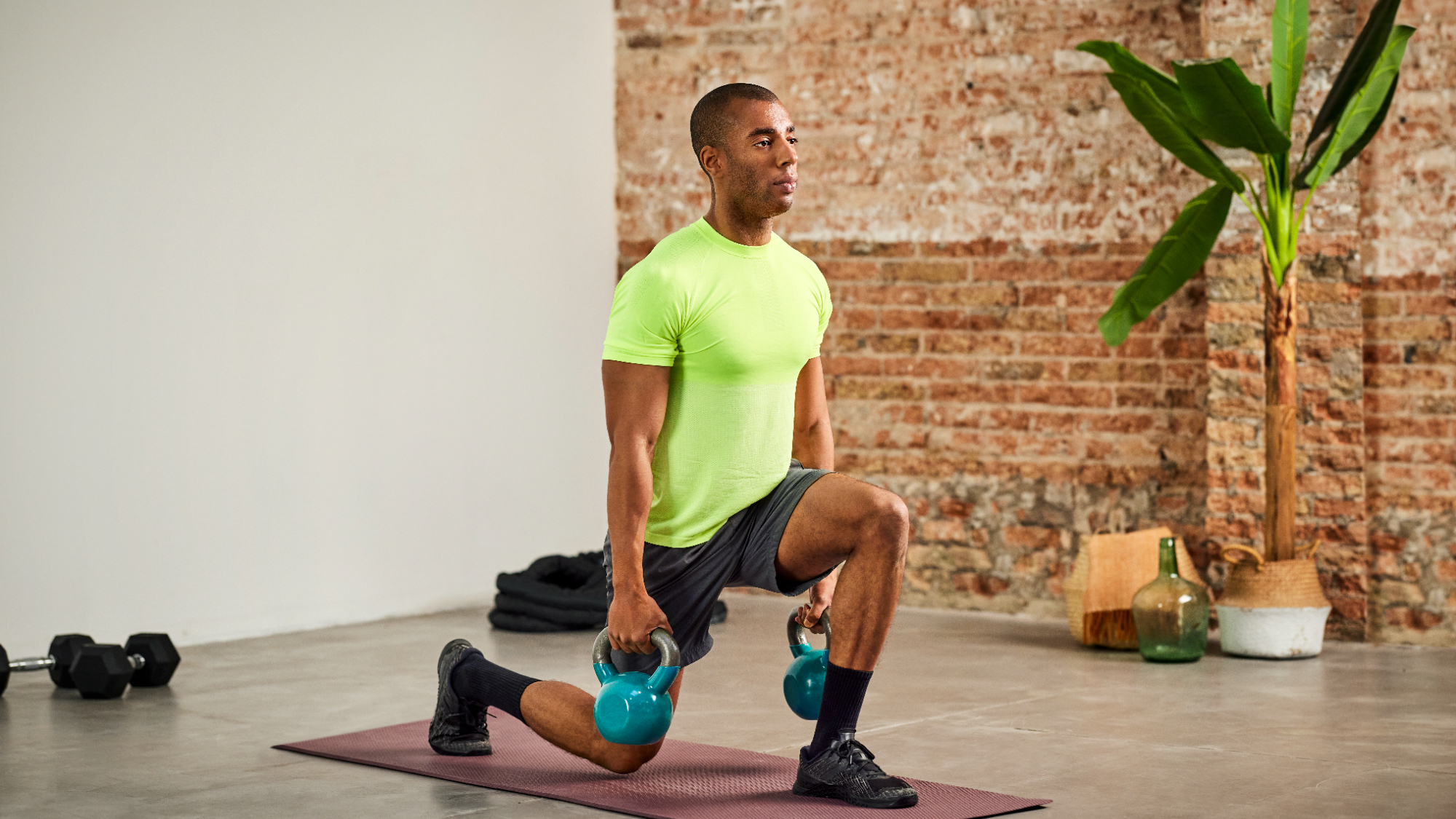Adjustable vs fixed weight kettlebells: which should you choose?
Weighing up adjustable vs fixed-weight kettlebells? We'll explain which are best for your workouts


Start your week with achievable workout ideas, health tips and wellbeing advice in your inbox.
You are now subscribed
Your newsletter sign-up was successful
Trying to weigh up adjustable vs fixed-weight kettlebells? These off-center weights are a core part of many gym routines, as they can add resistance to bodyweight exercises or form a more integral part of a muscle-building workout.
If you've been looking over some of the best kettlebells, you'll have noticed that fixed-weight kettlebells come in a range of sizes and prices, while adjustable varieties have a more limited weight range and typically cost a lot more too.
On the surface, fixed-weight kettlebells seem the better choice, but that's not always the case. The right choice for you will really depend on how you like to work out and what your goals are.
To help you decide which muscle-building, fat-burning weights to buy, we've compared adjustable vs fixed-weight kettlebells in terms of price, materials, durability, and usability.
Adjustable vs fixed-weight kettlebells: price
As much as we'd all like a fully functioning, preferably air-conditioned gym in a room of the house, gym equipment can be pricey. Helpfully, you can find plenty of dumbbells on sale, but that's not always the case with kettlebells.
It's also essential to choose weights that suit your needs rather than buying the most or least expensive set based on price alone, as that may cost more in the long run. But you can invest in these weights without breaking the bank.
Fixed-load kettlebells come in a vast range of weights, from 2 lbs up to over 150 lbs. Each size can vary in price depending on the handle (improved grip, wide design) and the finish (durable coating). At the lower weight range, you can pick up a beginner-friendly kettlebell for as little as $20.
Start your week with achievable workout ideas, health tips and wellbeing advice in your inbox.
But the downside is that you'll need a heavier weight as you get stronger, which means spending another chunk of money. You'll also need to find space for the new kettlebell or donate your old one. Adjustable kettlebells offer an alternative.
Adjustable options, however, get a little more expensive because they encompass multiple weight options and a more nuanced design. You can pick up a customizable kettlebell for around $100, but expect to pay up to $300 for premium models with smart features.
Adjustable vs fixed-weight kettlebells: materials and design

Kettlebell designs haven't really changed in years, and for a good reason — they're a very functional piece of kit, and what's not broken doesn't need to be fixed.
With that said, the majority of kettlebells available now — adjustable and fixed-load weights — are made of cast iron. It's a durable material that's malleable enough to offer a comfortable handle.
In most instances, fixed-weight kettlebells will come in various colors, and they're not just for show; they usually denote the weight of each one, so it's easier to tell them apart at a glance.
Adjustable kettlebells are different because their body is segmented to allow the removal of sections to achieve the desired weights. That's the standard for most adjustable kettlebells nowadays, with sand and water-filled options becoming increasingly rare.
Adjustable vs fixed-weight kettlebells: durability
This round is an easy win for fixed-weight kettlebells simply because they're comprised of one solid piece with new joins or moving parts. That means it's doubtful you can 'break' a fixed-weight kettlebell, and if you can, then you're doing something wrong or might be superhuman!
According to Matt Claes, founder of Weight Loss Made Practical, "fixed-weight kettlebells are extremely durable. If you already know what weight you need and/or plan to do cardiovascular kettlebell exercises where progressing in weight matters less, you can make a more long-term investment in a fixed-weight model."
On the other hand, adjustable kettlebells have weights that need to be added and removed. All that movement can take a toll over time, not to mention the irritation of misplacing a weight or two, which can affect the overall shape of the kettlebell.
However, both styles of kettlebell are often made from similar materials, like cast iron, but adjustable 'bells may case the iron weight plates in a plastic shell, which can become brittle over time, especially if left outside.

Matt Claes is the founder of Weight Loss Made Practical, a personal coaching company in Belgium focused on those leading busy lifestyles looking to lose weight and keep it off.
Adjustable vs fixed-weight kettlebells: usability

Here's where things will start to deviate based on your home gym/workout area setup. An adjustable kettlebell is your best bet if you've got a limited area because it'll take up considerably less space than multiple fixed-weight dumbbells.
It's also best for beginners because it alleviates the need to upgrade your kettlebells to higher weights when your kettlebell swings get more straightforward and you build more strength.
This is a technique known as progressive overload, where you gradually increase the weight as you get stronger. Of course, it's possible to do this with fixed-load weights, but less practical to store many of them.
On the other hand, fixed kettlebells go up to higher weight thresholds, making them better for users that have grown in confidence and have improved their form to the point where an adjustable kettlebell doesn't offer the required weight anymore.
Adjustable vs fixed-weight kettlebells: verdict
While there's no right or wrong option when choosing between adjustable and fixed-weight kettlebells, as it depends on how you train. However, if you're new to weighted workouts, we'd recommend adjustable kettlebells.
Adjustable options help you save space (as you don't need multiple weights cluttering up your home) and mean you can increase the load as you get stronger, so you don't need to break the bank on a new weight.
That said, fixed-weight kettlebells are generally better for regular strength training. The weight is often better balanced, and the designs are more durable. The only downside is that you'll need plenty of space to store them.

Lloyd Coombes is a freelance technology and fitness writer and reviewer for Fit&Well, with bylines at other Future publications, including Live Science, TopTenReviews, Space.com, and TechRadar. He regularly tests out the latest gadgets, including fitness trackers, headphones, and gaming accessories. When he's not reviewing hardware, Lloyd writes about video games at Dexerto.com.